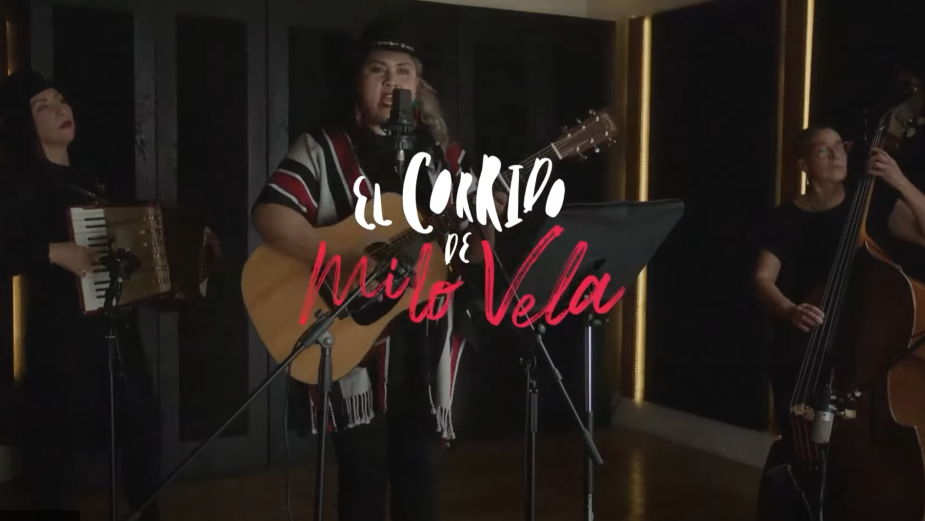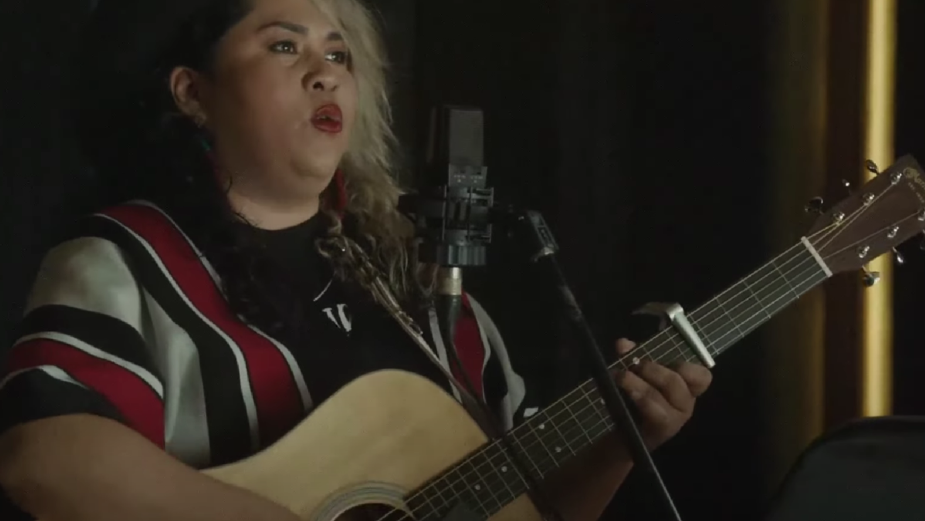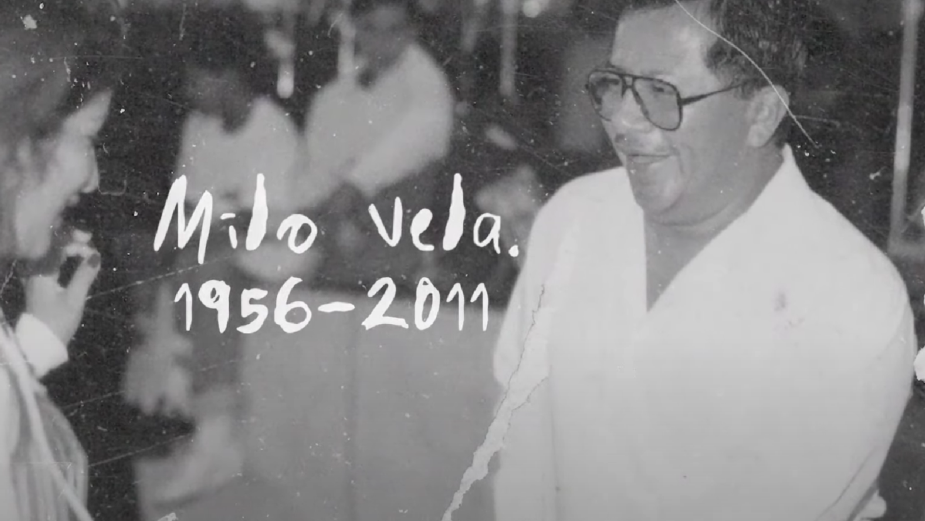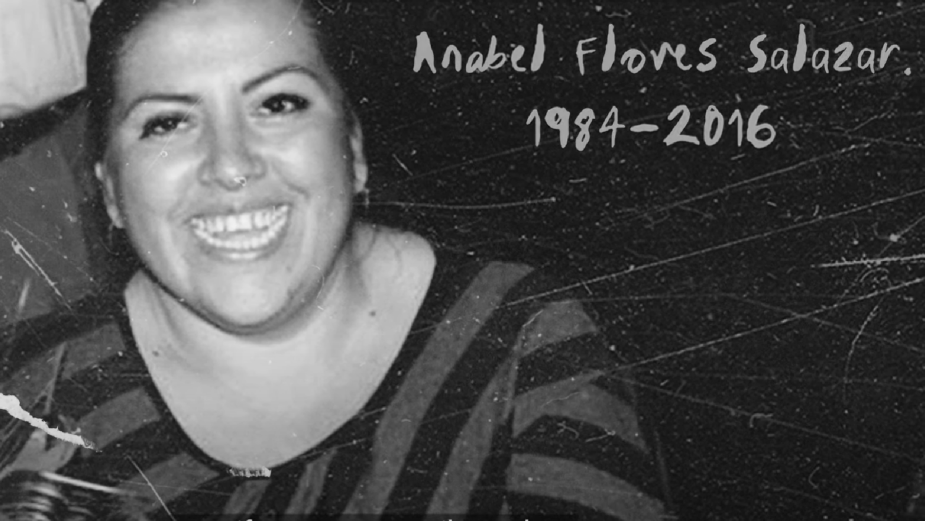
The “Anti-Narcorrido”: Publicis Mexico’s Protest Song Against Narco-cultured Content

Mexico is one of the most dangerous places in the world to be a journalist. Since 2000, over 153 journalists have been murdered, with Veracruz being the nation’s most dangerous state.
As organised crime, corruption of local authorities and politicians, and violence devastates Mexico’s communities, musical artists often turn the perpetrators into folklore legends through songs known as ‘Narcocorridos’. These musical compositions narrate the adventures of ‘narcos’ - or drug traffickers - reflecting and glorifying the violent reality that many Mexicans face on a daily basis.
Because this type of music is one of the most listened to and best-selling genres in the country, the charity Reporteros Sin Fronteras, popular singer/songwriter and activist Vivir Quintana and Publicis Mexico joined forces to challenge the popular “Narco-cultured content” and create an “Anti-narcocorrido” for Mexico and its journalists.
The song, written and performed by Vivir Quintana, is called ‘El Corrido de Milo Vela’ and tells the story of journalist Miguel Ángel López Velasco (Milo Vela), who was executed in 2011 while he was sleeping, along with several members of his family. The song challenges the idea of glorifying the ostentatious lives of drug lords and celebrates the real heroes who risk their lives to tell the truth: journalists.
Speaking with LBB’s Ben Conway, Publicis Mexico’s CCO, Diego Wallach, explains how the project came about and how this new protest song genre can be the start of an anti-narco counter-culture.
LBB> How did this campaign come about? When did RSF contact you and what was the inspiration behind doing this project now?
Diego> We got a call from RSF in December. They wanted to do their first RSF campaign exclusively for Mexico. Being the most dangerous country in the world for journalists they felt the need to start with a strong campaign.
LBB> For the uninitiated, can you explain what a ‘Narcocorrido’ is and why this project is opposing them?
Diego> Narcocorridos are a sub-version of Corridos, which is a typical northern Mexican genre. Narcocorridos are songs paying tribute to the drug lords; part of the Narco-culture that has also stepped into audiovisual content within the biggest content platforms, already owning a massive audience. The need [for this project] is to generate a counterculture to offer the audiences healthier - but still attractive - new content.

LBB> Did you contact and work with Milo Vela’s family and other families of murdered journalists?
Diego> Yes, we have worked closely with their family, colleagues, friends, and the lawyers that represent them. Vivir Quintana – the singer and writer – had many sessions deep-diving into Milo Vela’s life, before writing the song.
LBB> How was the process of writing the song? Did Vivir have full creative control?
Diego> Since we first approached her, she was enthusiastic and committed to making this idea come to life. When you work with a famous artist, you - as a creative - try to give them all the freedom to create. In this case, Vivir was incredibly generous and open to co-creation. With that said, the full song is purely her creation - we just provided her with the context and tiny details.

LBB> What message do you want the song to communicate to the listeners? Why is creating this ‘anti-narcocorrido’ important to you and the people of Veracruz/Mexico?
Diego> The Anti-Narcocorrido is important for the whole country and all the people in the world that in any way feel attracted to Narco-cultured content. The idea of creating a counterculture as a means of paying tribute to the true heroes in Mexico, journalists that were killed in the search for truth.
LBB> Were you there for the recording and live performance of the song in Mexico City? What was your reaction to hearing the song for the first time and witnessing that process?
Diego> Yes, alongside producing the song, we shot a video clip and as a part of that, recorded Vivir Quintana’s live performance. When the first day of the Tribunal del Pueblo (Milo Vela’s Mock Trial) ended, she did the performance. It was a moment of huge emotion, almost all the people were crying. Milo Vela’s surviving son and daughter were there. Despite the large number of people there, it felt like a gathering of friends and family, with a lot of intimacy and the emotions bloomed.
It’s a significant step, igniting a counterculture that needs to keep being fuelled to grow.
LBB> What was the idea for the music video? What visual elements and stories did you want to include?
Diego> We picked Milo Vela’s story because the impunity around his murder opened the door to a wave of violence and crime against another 36 journalists, just in Veracruz State. The idea for the video clip was to contrast the joyful chords of the corrido with the sad images of violence and murder.

LBB> Who did you work with on the production for the video?
Diego> The video’s director was Karen Gómez. She has a good eye for this kind of project. And she’s been involved with the journalists topic since many years ago. She was also the director of the #StillSpeakingUp campaign that we launched in 2020.
LBB> With recording an ‘anti-narcocorrido’ song and performing it live - as well as continuing violence against journalists in Veracruz - were there any concerns about safety for Vivir or the companies and people involved?
Diego> Living in Mexico comes with being aware of the dangers we could face. As an agency, Publicis Mexico has been addressing campaigns to promote journalists’ protection and freedom of speech for many years. Vivir has also a story of activism, being a referent for the feminist movement, and using music to fight for women's rights.
LBB> What was the hardest challenge you faced on this project and how did you overcome it?
Diego> The story of this project is quite flawless. When we came up with the anti-Narcocorridos idea, it was an idea everyone loved from scratch. And a lot of talented people joined to make the project come to life in a short time and at its best. Even Spotify joined to place the first anti-Narcocorridos at the top of the ‘Corridos’ lists within the platform. The challenge is now to keep the movement growing and consolidate [anti-Narcocorridos] as a new content culture.













